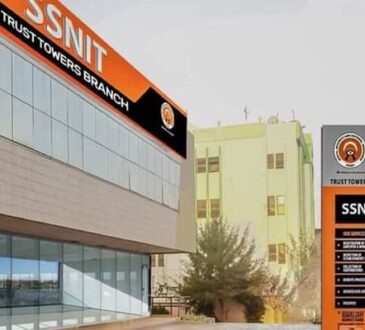Rebuilding investor trust in Ghana’s economy: The imperatives for today and the future

Over the past couple of years, Ghana has experienced economic volatility marked by high interest rates, high inflation, and high depreciation of the local currency. People and institutions that invested monies in government bonds have had to revise their plans due to the government’s domestic debt exchange programme.
The consequence of all this put together is the loss of investor trust and confidence in the Ghanaian economy. This notwithstanding, one critical thing investors must acknowledge is the fact that markets go through cycles and Ghana’s economy will bounce back if key stakeholders across government, investors and private sector commit to put the right things in place to ensure speedy economic recovery.
In this article, I will highlight some key factors for stakeholders to consider as we navigate the path to economic recovery.
Rationalizing Public Expenditure
On the part of government, the critical issue to look at is the attitude towards public expenditure. Government must re-evaluate its use of public funds, especially its funding of flagship policies. It is common knowledge that a lot of thought and consideration went into the planning and formulating of the policies with very good intentions behind them. However, in the light of the current economic circumstances, it will be prudent to rationalize these policies and determine which ones are priority and which ones can be deferred. Government must also intensify its fight against corruption as that also increases public expenditure.
Information Sharing
The second thing government should do in restoring confidence in the economy is the sharing of information. The government needs to be charitable with information because economies and markets thrive on the availability of information that allows investors to make informed investment decisions. When you leave investors in a vacuum, you open them up to assumptions, making them reactionary and panicky at the least sense of market instability. Regular update on the debt restructuring and progress being made will be helpful.
Patience is Key
In the case of the private sector, the first thing they need to do is to have patience and forbearance. The crisis is already here. Panic and knee-jerk reactions will only exacerbate the situation. It is critical to maintain calm and cool heads for decisions and steps that sustain our finances and investments until such a time that the economy/market recovers. It is also important to take investor education very seriously. Investors must be made to understand that market downturns are a reality and that every market experiences a downtime at some point but these are not permanent and overtime, the markets will bounce back. Patience is key as we head towards a recovery.
De-Dollarization of the Economy
One of the important initiatives the private sector must support is the ‘de-dollarization’ of the economy and the adoption of a price regime that reflects macro-economic conditions. Pricing things in foreign currencies only inflates costs, affecting the overall health of the economy. It is also very regular to see Ghanaian businesses increasing prices when things get worse but fail to reduce prices when things improve. These are issues the private sector need to consider as we seek to restore trust in the Ghanaian economy.
Assess Risk Profile Prior to Investing
On the part of investors, it is important that going forward, they re-evaluate a number of things before making investment decisions. Firstly, they need to ensure that their risk profiles match the kind of products they desire to invest. The disconnect between an investor’s risk profile and the kind of investment s/he does is one of the fundamental reasons why investors are agitated and not happy. It is also important to assess the goal of the investment. The reason why this is important is that a well-defined investment goal gives you fundamental reasons to consider in terms of what you should choose as an investment. Also, in choosing an investment product, it is important to understand the risks inherent in that product. Any decision to invest is a decision to take some risks. No investment is risk-free. Every investment action we take has a form of risk. But then the question is, how much risk are you willing and are able to take? This is risk profiling and a necessary step in taking investment decisions.
Diversify Investments
Furthermore, investors need to diversify their investments as a way of spreading their risks across different portfolios. Investors should not put all their eggs in one basket, no matter how good the investment is, it is important that they spread their investments. It is also useful to have a comprehensive view of one’s wealth before taking an investment decision. The investor is able to assess the overall allocation of wealth into different investments and ensure adequate diversification in line with investment objectives and liquidity needs or financial obligations. The investor is also able to assess how much of additional funds is truly available to invest. In essence, one cannot invest what s/he does not have; and invest based on one’s needs and not the attractive nature of the investment returns. And lastly, investors must be patient because the markets will bounce back.
As Ghana continues to embark on its journey towards economic recovery, rebuilding investor trust remains a top priority. The imperatives of rationalizing public expenditure, information sharing, de-dollarizing the economy and exercising patience on the part of investors form the pillars upon which this trust can be built. By diligently addressing these imperatives, Ghana can regain its reputation as a preferred investment destination, attracting both domestic and international investors eager to participate in the country’s economic transformation. As the nation forges ahead, it is essential that all stakeholders remain committed to creating an enabling environment that encourages investment, drives innovation, and unlocks the full potential of Ghana’s economy.







